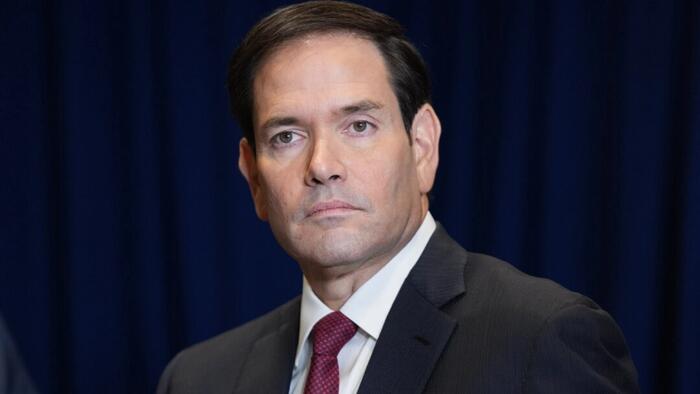


Authored by Monica O'Shea via The Epoch Times,
U.S. Secretary of State Marco Rubio says high migration numbers have created domestic political pressure for Australia, the UK, France, and Canada to recognise the Palestinian state.
His comments come after U.S. President Donald Trump issued a firm warning to governments at the United Nations on the need to control their borders.
“Well these countries are doing it frankly due to domestic political pressure in their own countries, you know, because of migration policies,” Rubio said on Fox News.
“Their countries have been flooded with foreigners who have become politically active and are insisting that their government do these sorts of things, and so that’s what they are responding to.”
For the Australian Labor government, several cabinet ministers preside over electorates with high Middle Eastern migrant numbers, including Immigration Minister Tony Burke.
These electorates include Blaxland, Watson, Werriwa and Fowler in Western Sydney, and Calwell, Dandenong, and Chisholm in Melbourne.
On Sept. 23, U.S. President Trump called on governments to tighten migration policies, warning that high numbers are distorting social cohesion.
“While we will always have a big heart for places and people that are struggling and truly compassionate … they have to solve the problem, and they have to solve it in their countries, not create new problems in our countries,” Trump said.
“When your prisons are filled with so-called asylum seekers who repay kindness … with crime, it’s time to end the failed experiment of open borders,” Trump said.
Rubio also added that recognising the Palestinian state would have no meaningful impact.
“But look it’s irrelevant, it’s going to get a little bit of attention, but there is no Palestinian state. It’s kind of emblematic of what the president says about the U.N. You can put out all the paper in the world you want,” Rubio said, but argued the only permanent solution would be a negotiated settlement between Palestine and Israel.
“One in which the Palestinians are going to have a territory and they are going to govern it, but it cannot be one that’s going to be used as a launch pad for attacks against Israel. And that’s something that has to be negotiated with Israel. It isn’t going to exist without Israel’s participation,” the secretary said.
Rubio also called on the leaders of Australia, UK, France, and Canada to put effort into negotiating and eliminating Hamas so that talks can progress.
“But for them, and for some of them in particular more than others, it’s sort of a vanity project that’s trying to make themselves relevant,” Rubio said regarding Palestinian recognition.
Australia formally recognised the state of Palestine on Sept. 21 amid pressure from U.S. Congress members not to.
Prime Minister Anthony Albanese and Foreign Minister Penny Wong said Australia’s move was part of a coordinated international effort to build new momentum for a two-state solution.
“Australia will continue to work with our international partners to help build on today’s act of recognition and to bring the Middle East closer to the lasting peace and security that is the hope, and the right, of all humanity,” Albanese said.
Albanese again defended Australia’s position on Sept. 24 in New York.
“Australia has a position that’s in line with the majority of the world, which is to support a two-state solution, and we see that the people of Israel have a right to peace and security, but the people of Palestine have a right, a right to see their legitimate aspirations for their own state to be realised,” he said.
Former U.S. Ambassador to the United Nations Nikki Haley took aim at the four governments saying they had caved to Hamas.
“It’s a shame our allies are more concerned about pleasing Hamas than releasing the hostages and ending the war,” Haley said in a post to X on Sept. 22.
Republican U.S. Congress members also warned it would disrupt the current peace process.
“Proceeding with recognition will put your country at odds with long-standing U.S. policy and interests and may invite punitive measures in response,” the letter states.
President Donald Trump called on governments not to give in to Hamas, but to issue the same message: Release the hostages now.”
“Now, as if to encourage continued conflict, some of this [U.N.] body is seeking to unilaterally recognise a Palestinian state. The rewards would be too great for Hamas terrorists for their atrocities,” he said.
Views expressed in this article are opinions of the author and do not necessarily reflect the views of ZeroHedge.
